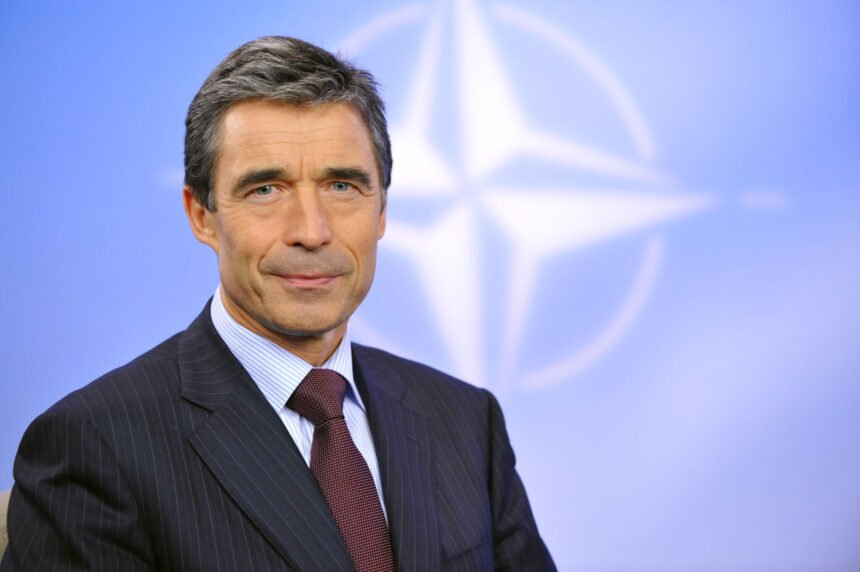The former Secretary General of NATO, Anders Fogh Rasmussen, has called for a major overhaul of Europe’s security strategy, warning that preparations for a European force to be deployed in Ukraine after a ceasefire or peace agreement are “moving far too slowly.” Speaking in a wide-ranging interview, Rasmussen said the European security model is at a turning point.
“I don’t want to see a coalition of the willing turn into a coalition of the waiting,” Rasmussen said, referring to a plan announced by UK Prime Minister Keir Starmer in London on March 2. Although multiple meetings have been held since then, key questions about the mission’s mandate, rules of engagement, and which countries would commit troops remain unanswered.
“In Europe, we spend too much time talking and too little time acting,” he warned. “Still, I hope Putin’s attack on Ukraine and the possible return of [Donald] Trump to the U.S. presidency will serve as a wake-up call to show Europeans that we must act quickly.”
Rasmussen, who served as Denmark’s prime minister before leading NATO from 2009 to 2014, also addressed broader geopolitical issues, including former President Trump’s repeated comments about buying Greenland from Denmark.
“It is shameful to threaten Denmark, a close ally, with military means to seize Greenland,” Rasmussen said. “I don’t think it will happen, but clearly, such threats can create divisions within NATO.”
Since leaving NATO, Rasmussen founded the non-profit Alliance of Democracies, aimed at countering what he describes as the global rise of “autocrats and dictators.” Last week, his group proposed a five-point plan for European defense, which includes increasing defense budgets to 4% of GDP by 2028 — significantly beyond current EU and NATO spending commitments.
“Russia’s investment in defense is now greater than the combined defense investment of the rest of Europe,” he said. “We must accelerate. At the very least, we need to double European defense spending.”
He argued that Europe has relied too long on an outdated model: “Cheap energy from Russia, cheap goods from China, and cheap security from the U.S. That model no longer works.”
These themes were also central to a recent conference in Copenhagen, where Rasmussen introduced his five-point plan. One striking idea presented was the need for an “economic NATO” — a defensive alliance to counter economic threats such as global tariffs.
“Trump’s administration launched a trade war against the whole world — except Russia and North Korea,” Rasmussen said. “So, I propose a D7 — the world’s seven democracies: the EU, UK, Canada, Australia, South Korea, Japan, and New Zealand — with an economic Article 5. Any economic coercion against one would be treated as an attack on all, triggering a collective response.”
It’s remarkable to hear a former NATO leader exclude the United States from a list of global democracies. Rasmussen responded bluntly: “Yes, but the U.S. has chosen isolation. I don’t see a readiness in the U.S. to lead the free world anymore. That’s why America is excluded from the D7.”
Governments around the world are grappling with how to respond to Trump-era tariffs. While deeper trade ties with other partners are part of the equation, Rasmussen’s proposals go much further than what most capitals are currently considering.
For example, the much-discussed EU-Mercosur free trade deal is part of the EU’s collective response, but France remains hesitant to ratify it. Meanwhile, EU states have largely reacted to U.S. tariffs individually, preferring to negotiate with Washington rather than form a united front.
Rasmussen doesn’t pretend there are easy solutions to the complex web of global interests that hinder the creation of new international frameworks. But he believes the urgency is clear.
“For the 19th year in a row, global freedom and democracy have declined,” he said. “Now is the time to build stronger cooperation.”
“I know from experience with Putin and other autocrats — they only respect strength, unity, and resolve. If we act together, if we act united, we can counter the autocracies that are advancing,” Rasmussen concluded.







